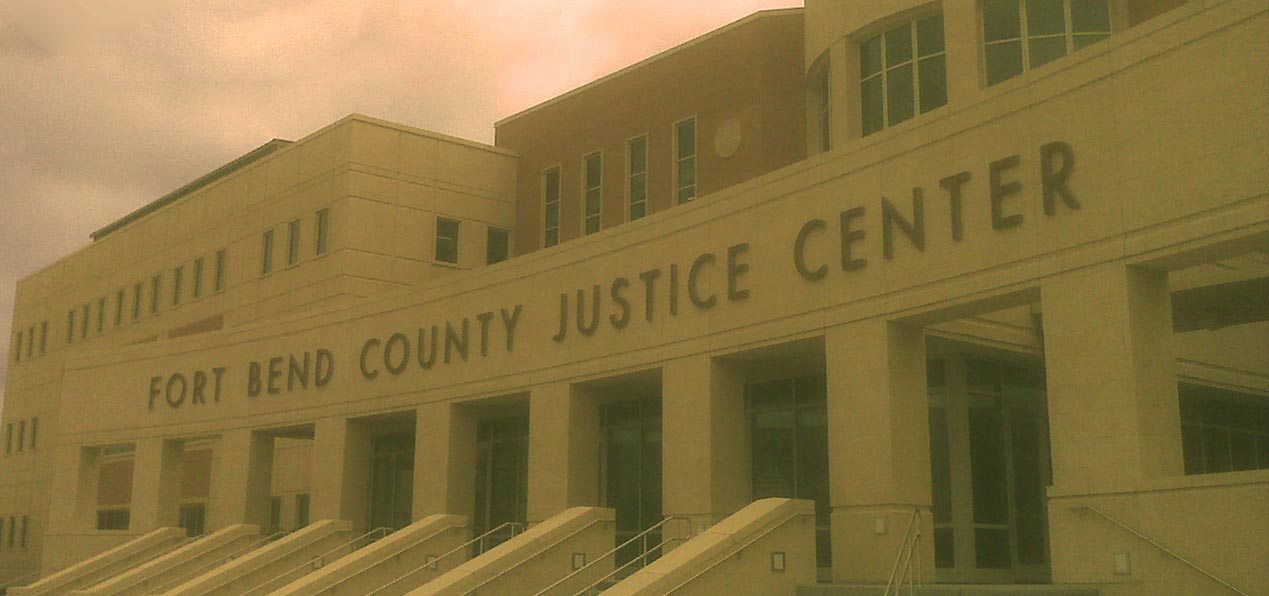
Sep 22, 2016 | democrat, Fort Bend, Fort Bend County, Harris County, Judges, political parties, Politics, republican, Texas, Voting
No one if you are not registered to vote. In Texas, the deadline to register is October 11, 2016 for the November 8, 2016 elections. If you know you are not registered to vote you can go to this link – https://webservices.sos.state.tx.us/vrapp/index.asp and get registered. To confirm you are registered go to this link – https://teamrv-mvp.sos.texas.gov/MVP/mvp.do, and make sure all of your information is correct. Once you are registered make sure you have proper ID with you when you go to vote. There are seven forms of ID which are approved. They are:
- Texas driver license issued by the Texas Department of Public Safety (DPS);
- Texas personal identification card issued by DPS;
- Texas Election Identification Certificate issued by DPS;
- Texas handgun license issued by DPS;
- United States military identification card containing the person’s photograph;
- United States citizenship certificate containing the person’s photograph;
- United States passport.
So once you are registered to vote, and have your ID ready to go vote, how do you know where to go? Go back to this link https://teamrv-mvp.sos.texas.gov/MVP/mvp.do, fill out the information and click enter and on the next page, click on the link under upcoming elections. It will give you voting precincts where you can vote. I would suggest that you avoid the last minute rush and take advantage of early voting from October 24th – November 4th.
So who are you going to vote for?? The next blog will address straight ticket voting. A quick preview – don’t do it.

Feb 24, 2016 | democrat, Fort Bend, Fort Bend County, Harris County, Judges, political parties, Politics, republican, Texas, Voting
Primary Election March 1, 2016
Early Voting Period: February 16 – 26, 2016
Republican Judicial Election Recommendations–
Supreme Court:
Justice, Supreme Court, Place 3 Debra Lehrmann
Justice, Supreme Court, Place 5 Paul Green
Justice, Supreme Court, Place 9 Eva Guzman
Court of Appeals: Chief Justice, 1st Court of Appeals Sherry Radack
Justice, 14th Court of Appeals, Place 2 Kevin Jewell
Justice, 1st Court of Appeals, Place 4 Evelyn Keyes
Justice, 14th Court of Appeals, Place 9 Tracy Elizabeth Christopher
Fort Bend County District Courts:
District Judge – 240th Judicial District Chad Bridges
District Judge – 387th Judicial District Brenda Mullinix
District Judge – 400th Judicial District Maggie Jaramillo
District Judge – 434th Judicial District James H. “Jim” Shoemake
District Judge – 505th Judicial District David Perwin
Fort Bend County Court: Judge, County Court at Law No. 5 Harold Kennedy
Democratic Judicial Election Recommendations–
Supreme Court:
Justice, Supreme Court, Place 3 Mike Westergren
Justice, Supreme Court, Place 5 Dori Contreras Garza
Court of Appeals: Chief Justice, 1st Court of Appeals Jim Peacock
Justice, 1st Court of Appeals, Place 4 Barbara Gardner
Justice, 14th Court of Appeals, Place 9 Peter Kelly
If a court is not listed then no recommendation is made for that party candidate. That could be because I like the other party candidate better or I just don’t know them well enough to recommend them. Also as a final disclaimer some of my recommendations for the general election may change depending upon the primary results and/or my learning more about the candidates who I don’t know as well.
Feb 24, 2015 | car crash, Judges, personal injury, trial attorney, Uncategorized
Decisions from the Texas Supreme Court can be confusing. Too often we Texans brush over or ignore these decisions that could impact individuals who seek justice through our court systems. When I try to explain these decisions and convey their importance, I am occasionally met with a response of “well, of course you’re concerned, but you are a trial lawyer.” Guilty as charged. But a recent decision from the Texas Supreme Court deserves the attention and indignation of every Texan, regardless of their profession or politics.
On February 13, 2015 in Nabors Well Services, Ltd. v. Romero, 021315 TXSC, 13-0136 the Texas Supreme Court held that “for more than forty years evidence of a plaintiff’s failure to use a seat belt has been inadmissible in car-accident cases”, but “today we overrule it and hold that relevant evidence of use or nonuse of seat belts is admissible for the purpose of apportioning responsibility in civil lawsuits.” The Court went on to state “Following our precedent in Carnation Co. v. Wong, 516 S.W.2d 116 (Tex. 1974), the trial court excluded all evidence of nonuse of seat belts.” Despite the trial court, the attorneys, and the appellate court following the proper law and our forty years of legal history “we reverse the court of appeals’ judgment and remand this case to the court of appeals for further proceedings consistent with this opinion.” Meaning go back and try the case again, maybe.
I am indeed a trial lawyer, representing people injured or killed by the actions of others AND representing business clients who seek to recover damages or enforce agreements. With this role in the court system, I have direct contact with juries and trial judges who hear and judge cases based upon the evidence presented and the laws of the land. As a trial lawyer, I try cases and present evidence to juries based upon these established rules. I understand that I will not always win despite the evidence (or because of the evidence) and I know that is what I and other trial lawyers signed up for when we chose this great profession.
What we did not sign up for is to try a case under one set of rules, then forty years later have an appellate court change the rules and make them retroactive. This means that a case presented and decided under the current laws could be reopened, retried and may result in a reversal of judgment. This would be outrageous in any other setting, yet has passed through our Supreme Court and been handed down without much backlash.
Here is an analogy (we lawyers love those).
- In football, all teams strategize and train knowing the rules of the game; the most basic being that to win, you must score more points than the other team.
- Imagine that Team P played Team D in the championship game, it was a great game, hard fought with exceptional coaches, players, referees and fans for both teams. There were some penalties during the game by both sides, but the Refs did a great job and no big surprise by either side. The game ended on a long field goal as time ran out with the Team P winning by a margin of just one point.
- After the game, Team D protests that Team P should have had to win by 2 to be declared victors. This is dismissed by the referees, but Team D takes their case up and up the chain of command until someone will hear them out. By the time they find a sympathetic ear and somehow manage to change the rule, it has been more than two years since the game was played.
- Team P thinks they must be in an alternate universe when told that they can now be challenged to a rematch under different rules. They have to hunt down their players and coaches (hopefully they are all still healthy and available), revisit their strategy, and play in different conditions with a new team of referees judging under these new rules.
The decisions from the Texas Supreme Court are not impacting a game, they are impacting the lives and recovery of injured Texans who trust that the rug will not be pulled out from under their feet when they are trying to make a stand for justice.
As a trial lawyer, I know there will be times where a judge will rule I cannot get evidence before a jury or something happens in trial that is unexpected (ok that is every trial). But the same rules should apply at the start of trial all the way through the appeal. I think that a fairer approach is for, the Supreme Court’s changes to this or any rule of law should be effective proactively on all cases filed ninety (90) days or more following the final ruling. This would allow attorneys on both sides to make appropriate adjustments and preparations to provide the proper evidence at the trial of their case and follow the changed rule of law. It would also save taxpayers, juries, judges, clients and attorneys a significant amount of time and money and provide stability to the law.
The issue here is not whether the change to the law is good or not (that is a subject for another blog) but the unfairness of making the change to the long-established rule of law retroactive.
What do you think?


